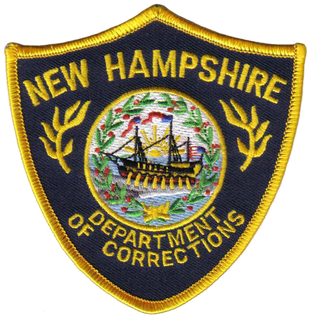Related Research Articles

In justice and law, house arrest is a measure by which a person is confined by the authorities to their residence. Travel is usually restricted, if allowed at all. House arrest is an alternative to being in a prison while awaiting trial or after sentencing.

Sir Cyril Richard Smith was a prominent British politician who after his death was revealed to have been a prolific serial sex offender against children. A member of the Liberal Party, he was Member of Parliament (MP) for Rochdale from 1972 to 1992. After his death, numerous allegations of child sexual abuse by Smith emerged, leading law enforcement officials to believe he had been guilty of sex offences.
Chemical castration is castration via anaphrodisiac drugs, whether to reduce libido and sexual activity, to treat cancer, or otherwise. Unlike surgical castration, where the gonads are removed through an incision in the body, chemical castration does not remove organs, nor is it a form of sterilization. Chemical castration is generally reversible when treatment is discontinued, although permanent effects in body chemistry can sometimes be seen, as in the case of bone density loss increasing with length of use of depot medroxyprogesterone acetate (DMPA).

The Probation Service for England and Wales is a statutory criminal justice service, mainly responsible for the supervision of offenders in the community and the provision of reports to the criminal courts to assist them in their sentencing duties. It was established in its current form by the Criminal Justice and Court Services Act in April 2001, but has existed since 1907 as a set of area-based services interacting at arm's length with central government.

A halfway house is an institute for people with criminal backgrounds or substance use disorder problems to learn the necessary skills to re-integrate into society and better support and care for themselves.
Thomas Victor O'Carroll is a British writer and pro-paedophile advocate, imprisoned for distribution of child pornography. O'Carroll is a former chairman of the now disbanded Paedophile Information Exchange (PIE) and was at one time a prominent member of the International Paedophile and Child Emancipation.
In the jurisdiction of England and Wales, a Multi-Agency Public Protection Arrangement (MAPPA) is an arrangement, set up in 2001, for the "responsible authorities" tasked with the management of registered sex offenders, violent and other types of sexual offenders, and offenders who pose a serious risk of harm to the public. The "responsible authorities" of the MAPPA include the National Probation Service, HM Prison Service and England and Wales Police Forces. MAPPA is coordinated and supported nationally by the Public Protection Unit within the National Offender Management Service. MAPPA was introduced by the Criminal Justice and Court Services Act 2000 and was strengthened under the Criminal Justice Act 2003.
The Kincora Boys' Home was a boys' home in Belfast, Northern Ireland that was the scene of serious organised child sexual abuse, causing a scandal and attempted cover-up in 1980, with allegations of state collusion. The Northern Ireland Historical Institutional Abuse Inquiry (HIA) began examining allegations relating to the Home on 31 May 2016, including claims that there was a paedophile ring at the home with links to the intelligence services; Northern Ireland Secretary Theresa Villiers said that all state agencies would co-operate with the inquiry.

The New Hampshire Department of Corrections is an executive agency of the U.S. state of New Hampshire; charged with overseeing the state correctional facilities, supervising probation and parolees, and serving in an advisory capacity in the prevention of crime and delinquency. As of June 30, 2013, the Department had an inmate population of 2,791, 15,267 on probation or parole, and 893 total employees, 470 as corrections officers and 64 as probation/parole officers. The agency has its headquarters in Concord.

Anti-pedophile activism encompasses opposition to pedophiles, pedophile advocacy groups, child pornography, and child sexual abuse. Much of the direct action classified as "anti-pedophile" involves demonstrations against sex offenders, against groups advocating age of consent reform, legalization of sexual activity between adults and children, and against Internet users who solicit sex from underage children and teenagers.
Christopher Paul Neil, also known as Mr. Swirl, Swirl Face, or Vico, is a Canadian convicted child molester. He was the subject of a highly publicized Interpol investigation of the sexual abuse of at least 12 young boys in Vietnam, Cambodia, and Thailand, primarily owing to the Internet release of pornographic images depicting the abuse. He was arrested by Thai police in October 2007.

The Jersey Accommodation and Activity Centre is a building just north of Gorey in the parish of Saint Martin, Jersey, in the Channel Islands. It was formerly known as the Industrial School, the Jersey Home for Boys, and Haut de la Garenne. Its previous uses have included being an industrial school, a children's home, a military signal station, a television filming location, and a youth hostel. In 2008 it became the focus of the largest investigation into child abuse ever conducted in Jersey.

Paul Francis Gadd, known professionally as Gary Glitter, is an English former glam rock singer who achieved success in the 1970s and 1980s. His career ended after he was imprisoned for downloading child pornography in 1999, and was subsequently convicted of child sexual abuse and attempted rape, in 2006 and 2015, respectively.

Kesgrave Hall School was a private boys' boarding school in Kesgrave, England, catering for pupils with high academic potential who were unable to flourish in mainstream schools.
Child pornography is pornography that unlawfully exploits children for sexual stimulation. It may be produced with the direct involvement or sexual assault of a child or it may be simulated child pornography. Abuse of the child occurs during the sexual acts or lascivious exhibitions of genitals or pubic areas which are recorded in the production of child pornography. Child pornography may use a variety of mediums, including writings, magazines, photos, sculpture, drawing, painting, animation, sound recording, video, and video games. Child pornography may be created for profit or other reasons.
The 2009 Plymouth child abuse case was a child abuse and paedophile ring involving at least five adults from different parts of England. The case centred on photographs taken of up to 64 children by Vanessa George, a nursery worker in Plymouth. It highlighted the issue of child molestation by women, as all but one of the members of the ring were female.
Lancashire Probation Trust is a criminal justice agency responsible for punishing and rehabilitating offenders in Lancashire, England.

Child sexual abuse in the United Kingdom has been reported in the country throughout its history. In about 90% of cases the abuser is a person known to the child. However, cases during the second half of the twentieth century, involving religious institutions, schools, popular entertainers, politicians, military personnel, and other officials, have been revealed and widely publicised since the beginning of the twenty-first century. Child sexual abuse rings in numerous towns and cities across the UK have also drawn considerable attention.

Richard William Huckle was a convicted English serial child sex offender. He was arrested by Britain's National Crime Agency in 2014 after a tip-off from the Australian Federal Police and convicted in 2016 of 71 charges of sexual offences against children committed while he posed as a Christian teacher, and a freelance photographer in Malaysia.
Joseph McCann is an English-born Scottish–Irish serial rapist. In April and May 2019, McCann committed sexual attacks in Hertfordshire, London, Greater Manchester and Cheshire against 11 strangers, ranging in age from an 11-year-old boy to a 71-year-old woman. He evaded police, who suspect that he was sheltered by a "support network" across the country. For these crimes, he was tried at the Old Bailey and, on 6 December, convicted of 37 offences. Three days later, he was given 33 life sentences.
References
- 1 2 3 4 "Approved Premises". National Approved Premises Association. Retrieved 15 June 2011.
- 1 2 Henwood, Chris (9 June 2011). "Grooming suspect placed in controversial Aldrdge bail hostel near child". Birmingham Mail.
- 1 2 3 4 "Q&A: Bail hostels". BBC News. 7 November 2006.
- 1 2 "Super-Hostels Plan for Violent and Sexual Offenders". Daily Mirror. 25 April 2006.
- ↑ "Raymond Horne: What happens next?". BBC News. 20 March 2008.
- 1 2 3 "Paedophile hostel ban criticised". BBC News. 28 March 2008.
- ↑ Sapsted, David (1 July 2006). "Paedophile is moved from jail to family hotel". The Telegraph.
- ↑ Henfield, Sally (21 October 2008). "10 per cent rise in sex offenders in East Lancashire". Burnley Citizen.
- 1 2 "Hostels Make 'Significant Contribution' But Staff Still Pressurised". 4NI.co.uk. 17 July 2008. Archived from the original on 14 March 2012.
- 1 2 Thandi, Gurdip (11 September 2008). "Protest at Stonnall bail hostel". Birmingham Mail.
- ↑ "After decades of opposition, Aldridge bail hostel set to be moved". Express & Star. 30 May 2011.
- 1 2 "Hostel Stops Housing Paedophiles". BBC News. 9 January 2007.